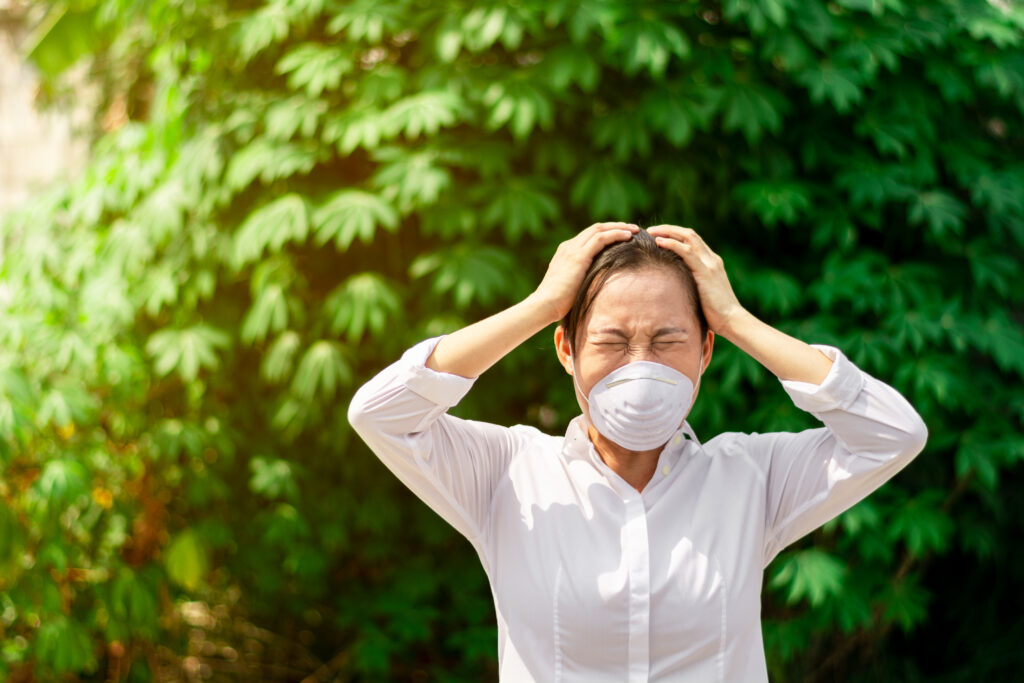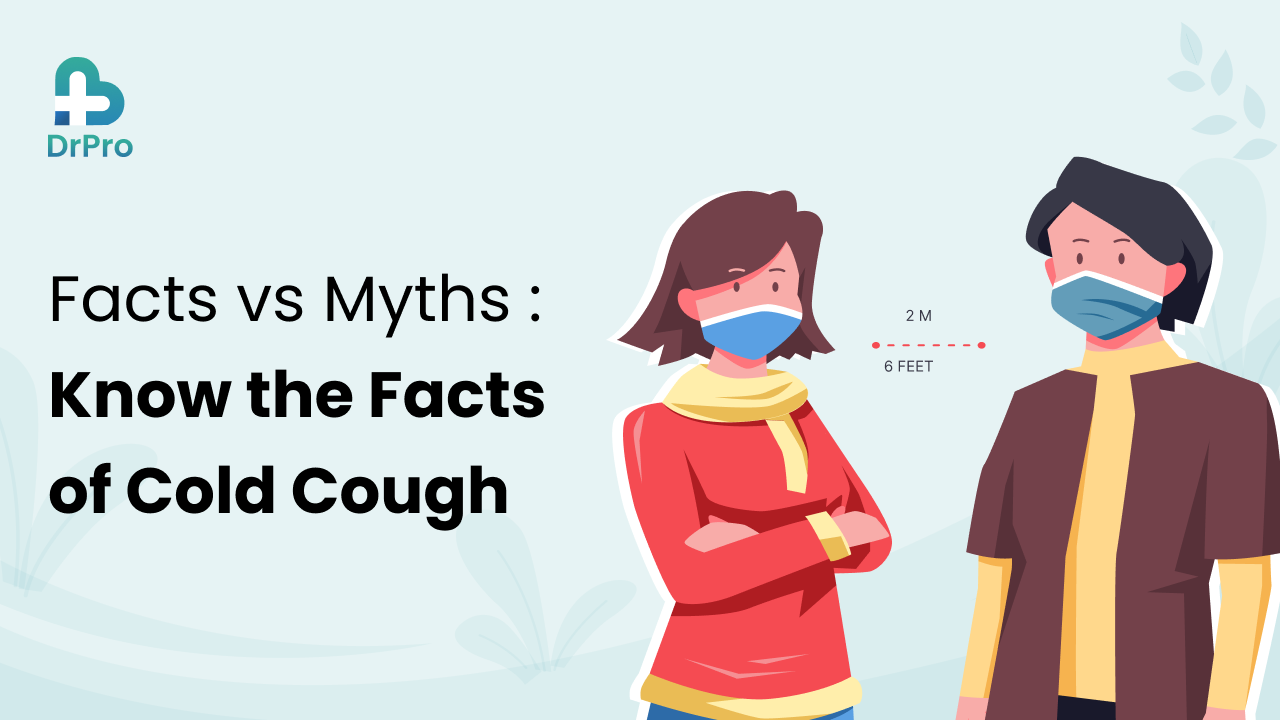Have you ever been sick and struggled with a cold and a cough? In the early stages like a scratchy throat, a stuffy nose, or a persistent cough that doesn’t seem to disappear, they can be very irritating and sometimes even alarming. Still, more often than not the problem lies in the fact that there are so many myths regarding colds and coughs that it becomes difficult to determine what should be done to tackle the problem at hand properly.
So in this article, we’ll try to look more closely at cold coughs and see what’s true and what’s not, what symptoms are normal and what are not, and why knowing myths helps to cope with it. DrPro Hospital Management System is an all-in-one solution for efficient healthcare administration, enhancing patient care and operational workflows
What is a Cold Cough?
Cold cough is usually a result of a cold which is a viral illness that occurs in the upper respiratory system. This is often caused by viruses including the rhinovirus and is easily spreadable from one person to another. When these viruses get into the body, they irritate the mucous membrane of the nasal and throat cavities and express themselves in symptoms such as coughing, sneezing, and nasal blockage.
Coughing on its own is a normal function within people’s bodies whose function is to expel mucus, foreign matter, and pathogens out of the airways. When dealing with the common cold, we can have a dry cough, which means that you are not coughing up phlegm, or a wet cough, where you are. Although it may be painful to deal with a cold cough, it is not too dangerous and should get better in 7-10 days. But knowing a bit about them and some myths associated with cold coughs can go a long way in how you handle them.
Here Are Some Common Symptoms Associated with a Cold Cough
Cough: Cold can be accompanied by dry throat or it can be accompanied by the formation of phlegm. Often worse at night.
Runny or Stuffy Nose: It is a disease that results from inflammation of the lining of the nasal passages.
Sore Throat: Sore throat.
Sneezing: If being dry, sore, and sensitive is not enough, sneezing is a reflex to help remove irritants from the nasal cavities.
Fatigue: Fatigue is a condition that is normally not experienced by the affected person.
Mild Fever: It is observed that in some cases low-grade fever may be present.
What’s Real About Cold? Facts vs. Myths
When it comes to managing cold and cough information that one comes across is a product of misconception. It is high time that address some myths and highlight the differences between myths and facts.

Myth 1: Going Out in Cold Weather Causes a Cold
Fact: Colds are viral and thus people get infected most of the time during winter because it is cold. Cold climate can weaken your immune system for a while, but the virus transmission is to blame, whether transmitted through air or contact with contaminated objects or work surfaces.
Myth 2: Antibiotics Can Cure a Cold
Fact: Penicillin is meant to fight bacterial ailments, not viral ones. Antibiotics should not be taken when a person has a cold and doing so can even worsen antibiotic resistance. However, there is no need to treat with medicines and stress to your internal security, let the immune system defeat the virus.

Myth 3: Green or Yellow Mucus Means a Sinus Infection
Fact: Streaks of color on mucus may point out that white blood cells are present due to an infection, but it doesn’t mean that you have a sinus infection. In many cases, sneezing is a normal consideration in the course of recovery from the common cold and similar ailments.
Myth 4: You Should Stop Exercising Completely During a Cold
Fact: If your symptoms are mild and above the neck such as a Runny nose or Sore throat, light to moderate exercise is safe. However, if one has a fever or feels too tired then it is advisable that he or she does not travel.

Myth 5: Drinking Milk Increases Mucus Production
Fact: There is no scientific work that provides information on the effect of milk on mucus production. It has not been found that you must exclude milk from your diet whenever there is a cold unless personally intolerant.
Why Understanding the Truth Matters
Myth contributes to unduly concerned or ill-advised approaches to treatment. For instance, prescribing antibiotics for a viral normal flu not only is costly but also finances the solidified global health issues such as antibiotic resistance. Likewise, beliefs such as avoiding light exercise or staying too covered up because of myths will slow down your healing process. Having the facts allows for better decisions to be made where your health is concerned.
Practical Tips to Manage a Cold Cough
Stay Hydrated: Make sure to consume enough water and other non-caffeinated liquids, including water, teas, broths, etc as this will help one get rid of the thick mucus that tends to build up in the body and throat.
Rest: Take care of your body by resting and if you are in a position to extend your hours of sleep, do it.
Humidify the Air: Adequate use of a humidifier in the house relieves congestion in the nasal passages and coughing.
Over-the-Counter Remedies: As it need arises take saline nasal drops or lozenges or syrups to treat cough etc. Cautious is advisable and always be sure to take the right dosage as prescribed.
Natural Remedies: To soothe a sore throat you can try ginger tea with honey or a warm gargling with salt water.
Avoid Smoking: Actually, smoking and exposure to smoke can turn the condition even worse and prolong the recovery time.
Conclusion
Learning the facts or myths about cold coughs helps to make a lot of difference in one’s handling of such sickness. It is normally not dangerous, but having the information soothes your mind and takes care of any fear that might be around to make the recovery process easier. As much as a cold cough is inevitable as a result of early morning classes, and late-night study. Cold night, getting through it is not a hopeless cause, all we need is to be very careful and make sure we take extra precautions. To stay updated, keep connected with DrPro Wellness for more informative articles.
FAQs
Q1. Can cold weather alone cause a cold?
No, colds are caused by viruses, not cold weather. Being outside in the cold doesn’t directly make you sick.
Q2. When should I see a doctor for a cold cough?
If symptoms persist beyond 10 days, worsen significantly, or include high fever, chest pain, or difficulty breathing, consult a doctor.
Q3. Are home remedies effective for treating cold coughs?
Yes, many home remedies, like ginger tea or steam inhalation, can help relieve symptoms. However, they do not cure the cold itself.
Q4. Can I prevent a cold cough?
While you can’t eliminate the risk, regular handwashing, and avoiding close contact with sick individuals. Maintaining a strong immune system can reduce your chances.
Q5. Is coughing during a cold harmful?
Coughing is a natural reflex that helps clear mucus and irritants from your airways. It’s generally not harmful but may require soothing if it becomes persistent or disruptive.

